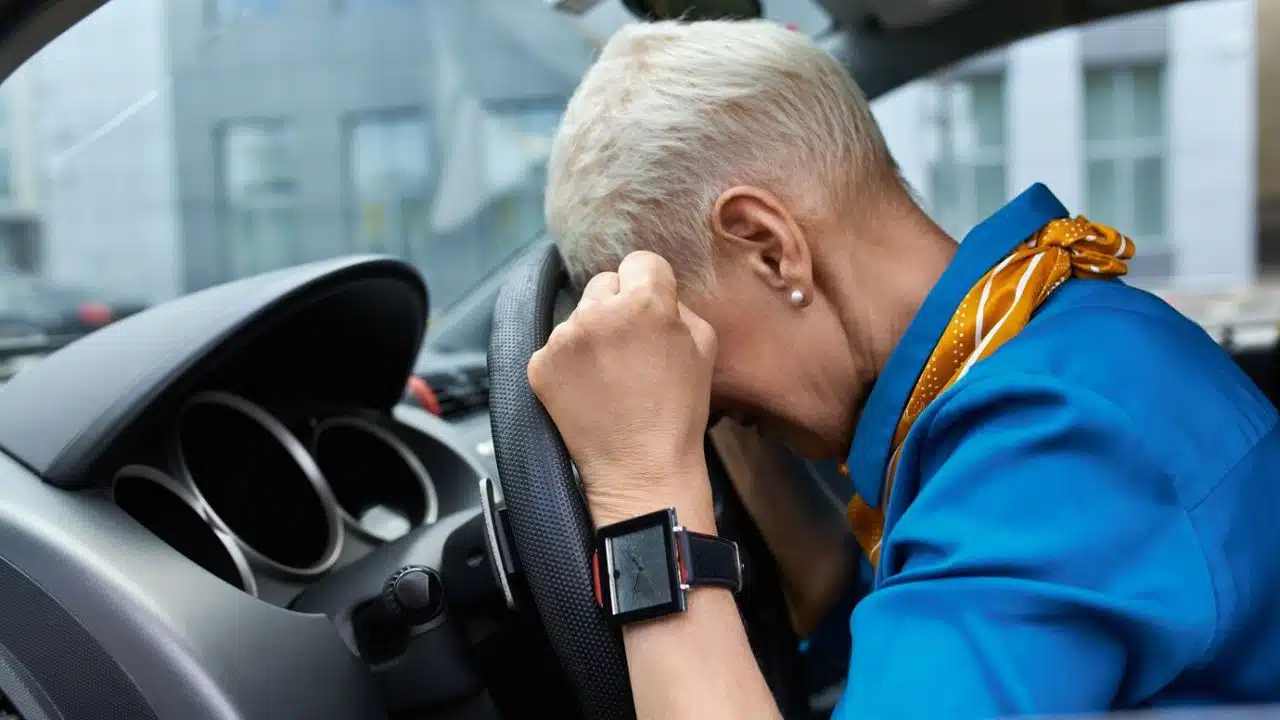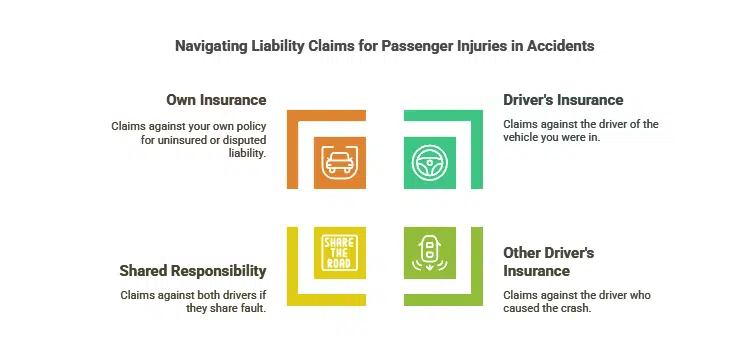Being involved in a car accident is a stressful and often traumatic experience, not just for drivers but also for passengers. Many people mistakenly believe that only the drivers involved in an accident have the right to file a claim, but this is not true. As a passenger, you have just as much right to seek compensation for injuries and damages.
If you were a passenger in a car accident, you may be entitled to compensation for medical expenses, lost wages, pain and suffering, and other damages. However, navigating the claims process can be confusing, especially when determining who is liable for your injuries. This guide will explain your rights as a passenger, how to file a claim, and what factors may affect your compensation.
1. Passengers Have the Right to File a Claim
Unlike drivers, who may share responsibility for an accident, passengers are rarely considered at fault. This makes it easier for injured passengers to seek compensation, as liability usually falls on one or more of the involved drivers. Whether the accident was caused by the driver of the car you were in or another vehicle, you can typically file a claim against the at-fault party.
Passengers may have multiple options for seeking compensation, including:
- Filing a claim against the at-fault driver’s insurance.
- Seeking coverage from their own insurance policy, if applicable.
- Exploring other compensation options, such as uninsured/underinsured motorist coverage.
2. Who Can a Passenger File a Claim Against?
Determining liability is a crucial step in the claims process. As a passenger, you may be able to file a claim against one or more of the following parties:
The Driver of the Car You Were In
If the driver of the vehicle you were riding in was responsible for the accident, you may be able to file a claim against their auto insurance policy. This applies whether they were entirely at fault or shared responsibility with another driver.
The Other Driver Involved in the Accident
If another driver caused the crash, their insurance company would be responsible for covering your injuries. This typically involves filing a third-party claim against the at-fault driver’s liability insurance.
Both Drivers (If Both Are Partially at Fault)
In cases where both drivers share responsibility for the accident, you may be able to file claims against both insurance policies. This can help ensure that you receive full compensation, particularly if one driver’s insurance policy limits are insufficient to cover your damages.
Your Own Insurance Policy
If the at-fault driver is uninsured or underinsured, or if liability is disputed, you may be able to seek compensation from your own auto insurance policy. This is especially useful if you have personal injury protection (PIP) or uninsured/underinsured motorist (UM/UIM) coverage.
3. What Types of Compensation Can a Passenger Claim?
Passengers injured in a car accident can seek various forms of compensation, depending on the severity of their injuries and the impact on their lives. Some of the damages you may be eligible for include:
Medical Expenses
- Emergency room visits
- Hospital stays
- Surgeries and medical procedures
- Physical therapy
- Prescription medications
- Future medical treatments
Lost Wages
If your injuries prevent you from working, you may be entitled to compensation for lost income. This can also include reduced earning capacity if your ability to work is permanently affected.
Pain and Suffering
Passengers can claim compensation for physical pain, emotional distress and mental anguish caused by the accident. This includes conditions such as anxiety, depression and post-traumatic stress disorder (PTSD).
Property Damage
If any of your personal belongings were damaged in the accident (such as a phone, laptop, or other valuable items), you may be able to recover the cost of replacing or repairing them.
Wrongful Death (for Surviving Family Members)
If a passenger dies from a car accident, their surviving family members may be able to file a wrongful death claim to seek compensation for funeral expenses, loss of financial support, and emotional suffering.
4. Steps to Take as a Passenger After an Accident
If you were a passenger in a car accident, taking the right steps can help protect your rights and improve your chances of receiving compensation. Here’s what you should do:
Seek Medical Attention Immediately
Even if you don’t feel seriously injured, seek medical evaluation as soon as possible. Some injuries may not be immediately apparent, and delaying treatment can hurt both your health and your claim.
Gather Evidence at the Scene
If possible, take photos of the accident scene, including vehicle damage, road conditions and any visible injuries. Collect contact information from all drivers involved, as well as any witnesses.
Get a Copy of the Police Report
A police report can provide crucial details about the accident and help establish liability. Make sure to request a copy for your records.
Notify the Insurance Companies
You should report the accident to the insurance company of the at-fault driver. If you’re unsure about liability, you may also want to notify your own insurance company.
Consult a Personal Injury Attorney
Navigating the claims process can be complex, especially if multiple insurance companies are involved. A Cleveland car accident lawyer can help you understand your rights, negotiate with insurers, and ensure you receive fair compensation.
5. Challenges Passengers May Face in Filing a Claim
While passengers generally have a strong case for compensation, there are some challenges to be aware of:
Multiple Insurance Companies
If multiple drivers share fault, their insurance companies may dispute liability, leading to delays in your claim.
Policy Limits
If the at-fault driver’s insurance coverage is insufficient to cover all injuries, you may need to seek additional compensation from other sources.
Claims Against a Friend or Family Member
If the driver of the vehicle you were in was responsible for the accident, filing a claim against their insurance can feel uncomfortable. However, remember that you are not suing them personally—claims are typically handled by their insurance provider.
Comparative Negligence Laws
In some states, passengers may be assigned partial fault for their injuries under comparative negligence laws. For example, if you were not wearing a seatbelt at the time of the accident, your compensation may be reduced.
Passengers injured in a car accident have the right to seek compensation for their injuries and losses. Whether the at-fault party is the driver of the car you were in, another motorist, or both, you can file a claim to cover medical expenses, lost wages, pain and suffering, and more.
To strengthen your case, seek medical attention immediately, gather evidence, and consult a personal injury attorney. The claims process can be complicated, but with the right approach, you can secure the compensation you deserve.
If you or a loved one has been injured as a passenger in a car accident, don’t hesitate to take legal action. Your health and financial well-being are too important to leave to chance.






































